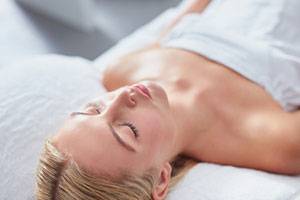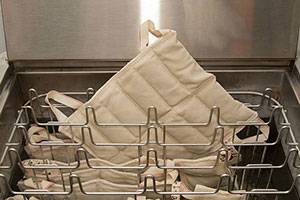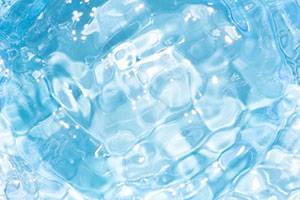What is Hydrotherapy?
Definition of Hydrotherapy
 Hydrotherapy is the medicinal use of water for positive health benefits. These health benefits come from the mechanical and thermal effects of water interacting with the body. It includes the use of physical water properties, specifically temperature and pressure, and sometimes the delivery of minerals or herbal treatments to manipulate the body’s flow of blood, the endocrine system and associated neural systems in order to treat the symptoms of certain diseases. The term “Hydrotherapy” is derived from the Greek words “Hydro” meaning water, and “Therapia” meaning healing.
Hydrotherapy is the medicinal use of water for positive health benefits. These health benefits come from the mechanical and thermal effects of water interacting with the body. It includes the use of physical water properties, specifically temperature and pressure, and sometimes the delivery of minerals or herbal treatments to manipulate the body’s flow of blood, the endocrine system and associated neural systems in order to treat the symptoms of certain diseases. The term “Hydrotherapy” is derived from the Greek words “Hydro” meaning water, and “Therapia” meaning healing.
History of Hydrotherapy
The oldest recorded use of Hydrotherapy can be traced back to ancient Egypt, where royalty bathed in large, warm pools of water mixed with oils and flowers. Whether or not people embarked upon this activity to enjoy health benefits or merely as an indulgent luxury is not certain, but given the advanced nature of the culture at the time, many believe that the Egyptians understood the inherent medicinal value of water as a healing agent. Other experts believe that Hydrotherapy got its start even earlier in Asia. In India, Japan and China, natural hot springs rich in minerals were often used to cleanse the body and soul of its impurities, and how far back that practice reached is hard to estimate.
After the fall of Rome and during the Middle Ages, the practice of Hydrotherapy seemed to disappear, but it was “rediscovered” and popularized in Europe during the Victorian Era, particularly in the 18th and 19th centuries.
The father of modern Hydrotherapy is believed by many to be Vincent Priessnitz, an Austrian farmer born in the 1700’s who prescribed combinations of “water, food & air” in place of traditional medicine as cures for common ailments. Word of his treatments and their successes traveled quickly, and because they were cheap and easy to do at home, they became very popular in Europe during his lifetime. Later, A Bavarian Priest named Sebastian Kneipp furthered Priessnitz’s work and developed systematic and controlled applications of Hydrotherapy for support and in combination with medicinal treatments delivered by doctors. It was the first time in modern history where Hydrotherapy was used as a medicinal treatment and administered by health professionals.
The Physical Effects of Hydrotherapy on the Body
Hydrotherapy uses water to deliver temperature and pressure changes to the body. These changes are sensed by the body via nerve endings in the skin and muscle, and result in neural “reflex effects” that are controlled by the brain and spinal chord. The most important of these reflex effects are vasodilatation and vasoconstriction, which are the terms used to describe the relaxation and tensing of the blood vessels in the body. These physical changes in the blood vessels cause changes in the rate of blood flow and in the metabolic functions that are linked to the rate of blood flow.
Hot Water Hydrotherapy Benefits

Increased blood flow has important effects on your body, including: 1) more efficient oxygenation of tissues, thereby helping injuries heal faster, and 2) more efficient removal of toxins from tissue, which helps prevent or ease injuries and increases tissue resiliency. As a result, hot water Hydrotherapy is used to achieve many health benefits, the most popular of which are outlined below.
Fight infection and injury
By increasing the rate of blood flow in the body, hot water Hydrotherapy increases circulation of the immune system’s white blood cells, enabling the immune system to work faster and more efficiently. A hot soak increases the production of endorphins in the body as well. Endorphins are the body’s “pain killers” and are associated with feelings of elation or happiness. Endorphins also stimulate the immune system, alleviate pain, and help tissues heal faster.
Help clear respiratory infections
The inhalation of steam, particularly those medicated with compounds like menthol, alleviates the constriction of swollen lung canals and air sacs, allowing fluids and mucus to move out of the lungs more readily, and oxygen into the lungs more efficiently. When your body fights lung infections, they move the ‘remains’ of organisms it has killed (and your spent white blood cells) out of your body via mucus, so clearing mucus and fluid out of your lungs is important in helping your body clear an infection as quickly as possible.
Reduce pain and inflammation from arthritis and rheumatisms
The increase in blood flow brought about by hot water helps muscles relax, which lessens stress and pressure on joints, thereby alleviating pain from arthritis and rheumatism. Inflammation in surrounding muscles and connective tissue is caused by a combination of cellular reactions to injury and a buildup of fluids, and when blood flow is increased, the body is able to reabsorb fluids faster and heal injury faster, helping reduce inflammation over time.
Improve sleep and relieve stress
The calming effects hot water has on the nervous and endocrine systems help put our bodies in a “lower gear”, thereby relaxing us mentally. This state of heightened relaxation makes it easier for us to fall asleep and helps alleviate daily stress and anxiety.
Prevent headaches
When blood vessels dilate, the physical space our blood has to fill in our bodies increases, and therefore overall systemic blood pressure decreases. Headaches are often brought about by high pressure in the arteries of the skull, so lower blood pressure helps prevent this from happening. In addition, stress is often a culprit of constricted blood flow to the brain, which can also lead to headaches. Since hot water Hydrotherapy treatments help alleviate stress, they can also limit the onset of stress-induced headaches as well.
Help control blood sugar in diabetics
Recent studies published in the New England Journal of Medicine have shown that people with Type 2 Diabetes had an easier time controlling their plasma sugar levels and weight when they soaked in hot water for 30 minutes a day, 6 days a week. In some instances, people needed less insulin each day as well. The increased blood flow, which mimics exercise and decreases activity of the endocrine system while increasing blood circulation to and from tissues, plays a role in the body’s ability to maintain glucose levels. Hydrotherapy is especially helpful in alleviating painful symptoms in people who have a harder time exercising than those who do not.
Reduce symptoms in patients with nerve, muscle or connective tissue diseases
Because hot water Hydrotherapy has a calming effect on the nervous system and helps increase blood flow to soft tissue, it helps alleviate symptoms associated with neural and muscular diseases by decreasing demands on neurons, decreasing stress in the muscles, and increasing the flow of oxygen to soft tissues, which aids in healing.
Relax muscles, heal muscle injuries, and relieve muscle disease symptoms
Hot water Hydrotherapy is especially helpful in bringing increased blood flow to the soft tissues of the body, particularly the muscles. In cases where people suffer from muscle injury or disease, hot water Hydrotherapy can provide great relief from many muscle discomforts including cramps, swelling, pain and spasms.
Treat circulatory problems, especially in the limbs
When blood vessels dilate, as they do during hot water Hydrotherapy treatment, circulation and blood flow is increased, particularly to soft tissue like muscles. This is especially helpful in people who suffer from circulation problems, especially to the limbs and extremities. People who suffer from cold hands and feet will find that many times hot Hydrotherapy doesn’t only provide an immediate relief, but that it continues to help even hours after the initial soaking period.
Cold Water Hydrotherapy Benefits

Decreased blood flow has important effects on your body, including: 1) the prevention of cellular fluid build up at the site of an injury, and 2) a calming or “numbing” effect on pain receptor nerves at injury sites. As a result, cold water Hydrotherapy is often used to alleviate swelling and pain, particularly in muscles and joints, and when used alternatively with hot water Hydrotherapy, it has proven effective in helping tone muscles, particularly in people whose mobility is limited. There are many other uses for cold water Hydrotherapy, the most popular of which are described below.
Alleviate depression
Because a short soak in cold water stimulates the endocrine system, cold water Hydrotherapy can help alleviate certain types of depression. Cold water helps a person feel more active and mentally alert, and can help people cope with feelings of sadness or tiredness.
Treat headaches
Headaches that are the result of an abnormal flow of blood within the blood vessels of the head can sometimes be successfully treated with a cold-water Hydrotherapy session. Vasoconstriction and the diversion of blood from the extremities to the core of the body will change the amount of blood flowing to the brain, relieving certain types of headaches.
Treat varicose veins
Varicose veins are the result of a build up of blood in the veins that increases the pressure in them, pushing them towards the surface of the skin, and stretching them, so they end up getting larger and holding more blood. When treated with cold water Hydrotherapy, veins in the leg constrict, forcing blood out of them. In addition, arteries in the leg constrict as well, meaning less blood is flowing through the tissues into the veins. The cold also helps “numb” pain caused by varicose veins and provides relief from the discomfort they cause.
Raise Low blood pressure
Cold water Hydrotherapy can be used to combat circulatory problems, particularly in the internal organs. Since immersion of cold water constricts capillaries on the skin and diverts blood flow towards the core of the body, it also helps increase blood flow to important internal organs, like the liver, heart and lungs.
Hydrotherapy precautions
While Hydrotherapy has many potentially beneficial health effects, too much heat or cold can affect health adversely. In addition, people with certain types of diseases and health problems should avoid Hydrotherapy or embark upon Hydrotherapy treatments only under the direct supervision of a physician. In all cases, before starting a Hydrotherapy regiment, it is important you discuss your Hydrotherapy plans with your doctor, and follow his/her advice and direction.
Once you have embarked upon your Hydrotherapy regime, be sure to monitor your progress and report any issues or side effects that arise to your doctor/health practitioner so s/he can make adjustments to your Hydrotherapy treatments as needed.
Sources:
- Hydrotherapy – Wikipedia.com
- Medicinal Benefits of Hydrotherapy – Elaine Moore, Suite101.com
- The Benefits of Hydrotherapy – Andew Tomkinson, ArticlesBase.com
- The Benefits of Hydrotherapy – Safety Tubs, SafetyTubs.com
- Hydrotherapy – HolisticOnline.com
- The Influence of Warm Hydrotherapy on the Cardiovascular System and Muscle Relaxation – Jerrold Petrofsky, Ph. D., J.D., Jaime Baxter, BS, Jaime Bomgaars, BS, Carrie Burgert, BS, Sara Jacobs, BS, Danielle Lyden, BS, Everett B. Lohman III, DPTSc, OSC
Call (805) 640-5770 for more information, pricing or to make an appointment.